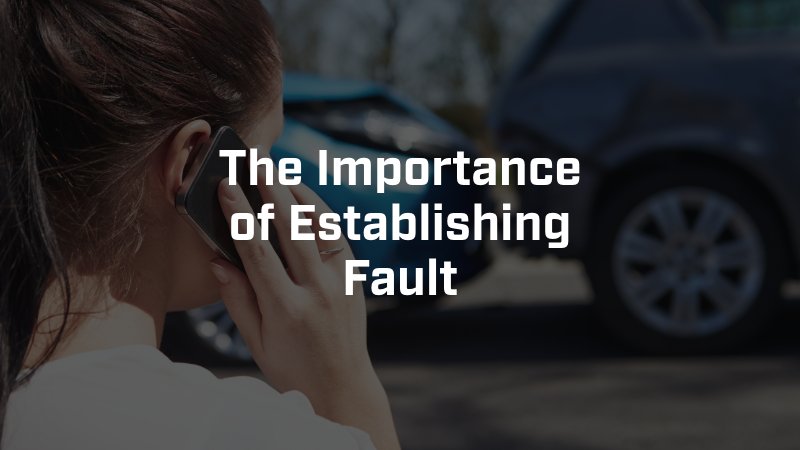Determining fault after an accident isn’t always easy. In fact, it can be downright challenging when insurance carriers get involved. The process of determining liability after a vehicle collision doesn’t end at the accident scene. Unfortunately, victims of these incidents can lose out on valuable compensation if the process gets tainted. A Phoenix car accident lawyer can help collision victims in AZ navigate this process.

The Importance of Establishing Fault
Determining who is at fault for a car accident is crucial for resolving insurance claims and potential lawsuits. In many states, including Arizona, the party responsible for causing the collision is liable for damages such as medical expenses, property repairs, and lost income.
However, fault is not always straightforward. Multiple factors can influence the outcome, including conflicting accounts from drivers, a lack of witnesses, or disagreements over the interpretation of traffic laws. Establishing fault requires careful consideration of evidence and a clear understanding of how liability works.
Types of Evidence Used to Determine Fault
When determining fault, various pieces of evidence are collected build a comprehensive picture of what happened. Key evidence includes:
- Police Reports. Law enforcement officers investigate accidents by documenting the scene, interviewing drivers and witnesses, and identifying potential traffic violations. Police reports often provide an unbiased (though not always accurate) account of the collision and are heavily relied upon by insurance companies.
- Eyewitness Testimony. Statements from individuals who saw what happened can help clarify key details, such as which driver ran a red light, was distracted, or failed to yield.
- Photographic and Video Evidence. Photos of vehicle damage, skid marks, and road conditions, as well as footage from nearby security or traffic cameras, can provide critical visual proof.
- Accident Reconstruction. In complex cases, accident reconstruction experts may analyze the evidence to determine the sequence of events leading to the crash.
- Black Box Data. Many modern vehicles are equipped with event data recorders, which can provide information about speed, braking, and steering inputs just before the accident.
Factors That Complicate Fault Determination
Several factors can complicate the process of determining fault, including:
- Disputed Accounts. Drivers involved in the accident may provide conflicting statements about what occurred, making it harder to establish liability.
- Comparative Negligence. In states like Arizona, fault can be shared between multiple parties. For example, if both drivers were partially at fault, the compensation awarded may be reduced based on their percentage of responsibility.
- Multiple Vehicles Involved. Accidents involving three or more vehicles create additional challenges in determining the chain of events and assigning fault.
- Lack of Witnesses. Without independent witnesses, fault may rely solely on physical evidence and the accounts of the involved drivers, which can be subjective.
How Insurance Companies Determine Fault
Insurance companies play a significant role in evaluating fault after an accident. Adjusters review the evidence, including police reports, photos, and witness statements, to make their determination. They may also consult accident reconstruction experts or medical professionals to verify claims.
It is important to remember that insurance companies are not impartial. Their goal is to minimize payouts, and they may attempt to shift blame to reduce their financial liability. This is one reason why having an experienced attorney on your side can make a significant difference.
How an Attorney Can Help Protect Your Interests
When disputes over fault arise, working with an experienced car accident attorney ensures that your side of the story is fully represented. Attorneys can:
- Conduct Independent Investigations. Your lawyer can gather additional evidence, such as interviewing witnesses, analyzing crash scene data, or securing surveillance footage.
- Negotiate with Insurance Companies. Attorneys have the skills to counteract lowball settlement offers and push back against unfair fault assignments.
- File a Lawsuit if Necessary. If negotiations fail, an attorney can take your case to court and present a compelling argument for why the other party was at fault.
- Explain Comparative Negligence Rules. If you share some responsibility for the accident, your lawyer can ensure that your compensation is calculated fairly under Arizona’s comparative negligence laws.
Contact Our Car Accident Attorneys
Determining fault in a car accident can be a complex and contentious process, but you do not have to navigate it alone. The team at Sargon Law Group is here to help.
Contact us today through our online form for a free consultation to learn how we can protect your rights and maximize your compensation.
